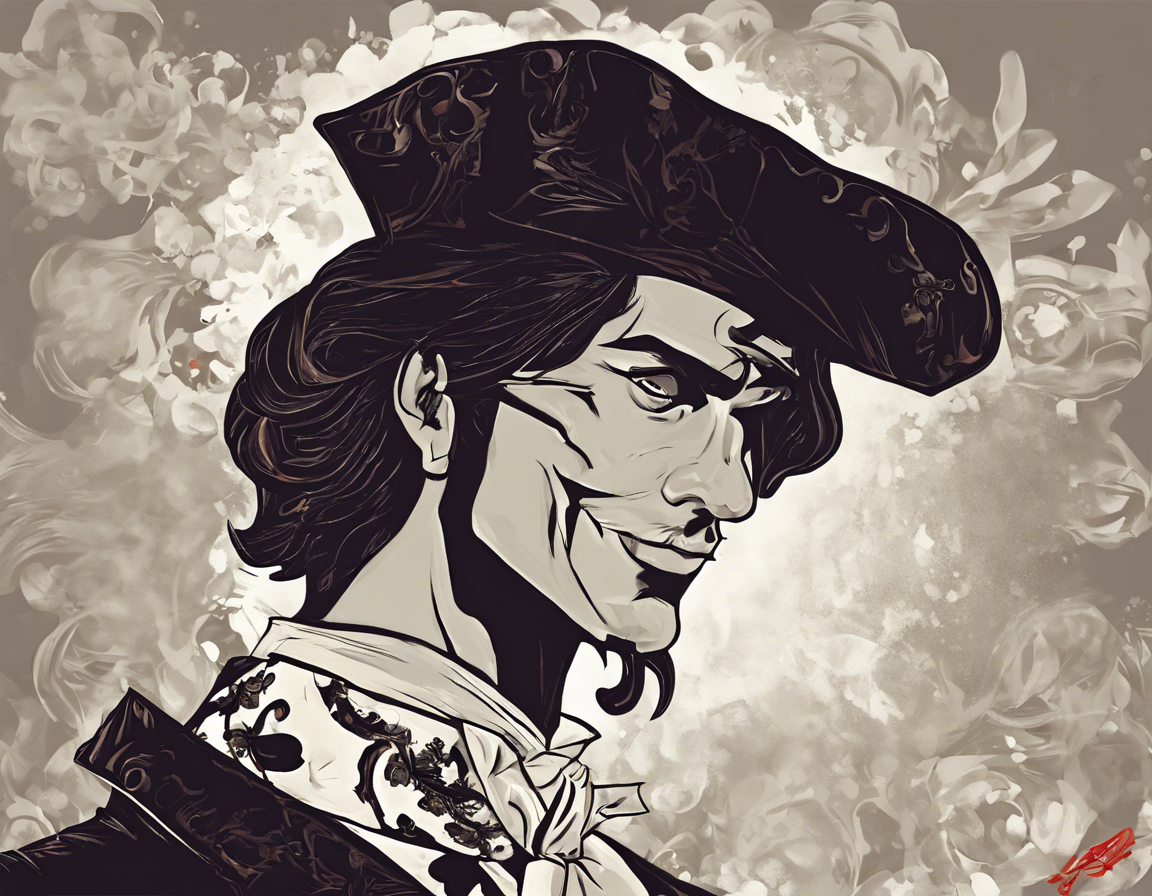Introduction
A tale as old as time, the exploits of Don Juan have fascinated readers and audiences for centuries. The charming seducer, the young nobleman, the lover of countless women – the character of Don Juan has been depicted in various forms of literature, theater, and film. From his origins in Spanish folklore to his depiction in Mozart’s opera, Don Giovanni, and Lord Byron’s Romantic poetry, Don Juan embodies the archetype of the irresistible lover whose conquests and escapades thrill and intrigue.
In this comprehensive article, we will delve into the story of Don Juan, explore its origins and evolution, analyze the themes and symbolism surrounding the character, and discuss some of the most notable adaptations in various art forms. Join us on a journey through the intriguing world of Don Juan as we unravel the mysteries and complexities of this timeless figure.
Origins of Don Juan
The origins of Don Juan can be traced back to Spanish folklore and the legend of “El burlador de Sevilla y convidado de piedra” (The Trickster of Seville and the Stone Guest). This early version of Don Juan, written by Tirso de Molina in the 17th century, introduced the character as a ruthless seducer who defies social norms and consequences. Don Juan’s unrepentant behavior and lack of regard for moral codes set the stage for future iterations of the character.
Evolution of Don Juan
Over the centuries, Don Juan underwent various transformations, reflecting the changing social and cultural contexts in which the story was told. From Molina’s original play to Molière’s comedic adaptation in “Dom Juan” and Byron’s brooding interpretation in his epic poem, the character of Don Juan took on different shades and meanings. Each iteration of the story added new layers of complexity and ambiguity to Don Juan’s character, further captivating audiences and critics alike.
Themes and Symbolism
At the heart of the Don Juan story are themes of desire, freedom, rebellion, and mortality. Don Juan’s insatiable appetite for sensual pleasures mirrors humanity’s eternal struggle with temptation and consequence. The character’s defiance of societal norms and authority speaks to the rebellious spirit that lies within all of us, while his ultimate downfall serves as a stark reminder of the fragility of human existence.
The symbolism surrounding Don Juan is equally rich and multifaceted. The character has been interpreted as a symbol of liberation from conventional morality, a representation of hedonism gone awry, and a reflection of the dark and mysterious aspects of the human psyche. Don Juan’s encounters with ghosts, demons, and supernatural beings add a layer of mysticism to the story, inviting interpretations that go beyond the mere retelling of a romantic adventure.
Notable Adaptations
The story of Don Juan has been adapted into numerous artistic forms, including literature, theater, opera, and film. Some of the most notable adaptations of the Don Juan legend include Mozart’s opera, “Don Giovanni”, which captures the essence of the character through music and drama; Molière’s comedy, “Dom Juan”, which satirizes the hypocrisies of society; and modern interpretations such as the film “Don Juan DeMarco”, starring Johnny Depp, which reimagines the legend through a contemporary lens.
Each adaptation of the Don Juan story brings fresh and innovative perspectives to the character, exploring new themes and meanings that resonate with audiences of different generations. Whether portrayed as a charming rake, a tormented soul, or a tragic hero, Don Juan continues to captivate and intrigue with his innate contradictions and irresistible charm.
Frequently Asked Questions (FAQs)
1. Who was the original author of the Don Juan story?
The original author of the Don Juan story was Tirso de Molina, a Spanish playwright who wrote the play “El burlador de Sevilla y convidado de piedra” in the 17th century.
2. What are some common themes in the Don Juan story?
Common themes in the Don Juan story include desire, freedom, rebellion, mortality, temptation, and consequence.
3. How has the character of Don Juan evolved over time?
The character of Don Juan has undergone various transformations, from a ruthless seducer in Tirso de Molina’s play to a more complex and ambiguous figure in later adaptations by Molière, Byron, and others.
4. What are some notable adaptations of the Don Juan story in literature and film?
Some notable adaptations of the Don Juan story include Mozart’s opera “Don Giovanni”, Molière’s comedy “Dom Juan”, Lord Byron’s epic poem, and the film “Don Juan DeMarco” starring Johnny Depp.
5. What is the symbolism of Don Juan in the story?
Don Juan is often interpreted as a symbol of liberation from conventional morality, a representation of hedonism, and a reflection of the dark aspects of the human psyche.
6. Why is the character of Don Juan considered timeless and universal?
The character of Don Juan is considered timeless and universal because he embodies universal themes of desire, rebellion, mortality, and the human struggle with temptation and consequence.
7. How does Don Juan challenge traditional notions of morality and authority?
Don Juan challenges traditional notions of morality and authority through his defiance of social norms, his rejection of conventional values, and his pursuit of personal freedom and pleasure.
8. What is the significance of Don Juan’s encounters with supernatural beings in the story?
Don Juan’s encounters with ghosts, demons, and supernatural beings add a layer of mysticism to the story, highlighting the character’s fascination with the unknown and his ultimate confrontation with mortality.
9. How have modern adaptations of the Don Juan story reinterpreted the character for contemporary audiences?
Modern adaptations of the Don Juan story have reinterpreted the character through a contemporary lens, exploring themes of love, identity, mental health, and social dynamics in ways that resonate with modern audiences.
10. What lessons can be gleaned from the story of Don Juan for contemporary society?
The story of Don Juan serves as a cautionary tale about the consequences of unchecked desire, the dangers of living a hedonistic lifestyle, and the importance of balancing personal freedom with moral responsibility in today’s world.
